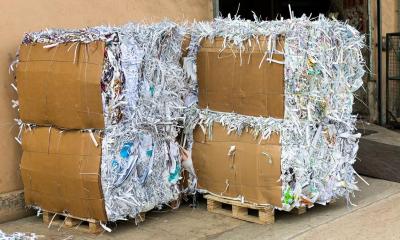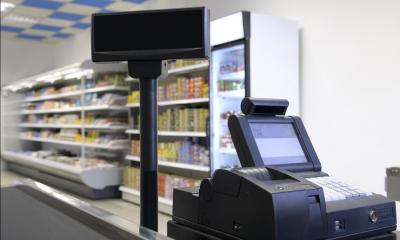
You'll need to comply with lots of environmental legislation if you're planning to offer waste disposal services. Read our in-depth practical guide to starting up and running your waste collection business.
- Research your target market
- Establish your customer profiles
- Types of waste
- What type of waste will you collect
- Recycling
- Pricing policy
- Buy an existing business
Research your target market
When you plan your waste collection business it's very important to think about who your customers will be, how well they are already served, and why they will choose your business over your competitors. Doing some market research will help you with this.
The demand for a specialist waste collecting service
You need to find out whether there is enough demand for your waste collection business in the area. The collection of dry waste is generally well catered for with domestic waste collection services and recycling facilities provided by the local authority. Skip hire is also widely available for people who want to dispose of larger items or waste such as household and garden rubbish or building rubble. To make sure you'll get enough business you will probably need to offer a more specialised service.
Bearing this in mind, think about the types of waste collection services that would be most in demand in your area. For example - in rural areas you might consider offering a farm waste collection service for used pesticides, other agrochemicals, or animal by-products. In areas of industrial activity, you could consider offering to collect waste oil, chemicals, scrap metal or obsolete equipment. In towns and cities, you might collect office waste such as batteries, wastepaper, cardboard, plastic, toner cartridges or old IT equipment. Maybe you plan to focus on recyclables. You might offer a sensitive document shredding and disposal service.
Find out about the waste collection policy of the local authority for the area in which you'll be operating. With the increase in recycling in recent years, different authorities have adopted different waste collection policies. Some have restricted the number of bags/bins of household waste they will collect and the frequency of collections, some collecting fortnightly and others at longer intervals. Some collect garden waste free while others charge. The policy in your area may offer scope for supplementing local authority collections with regular or one-off collections for households which find the official collections inadequate. You will also be able to establish what paid-for services the authority offers and what its prices are.
Competition
When you've given some thought to the potential opportunities in your area, you need to consider the level of existing competition. Try to identify how many other organisations are already offering waste collection services locally. A quick online search should help to give you a good idea about this. You will have already thought about the level of competition you face from the free and paid for services provided by local authority. Now think about the competition from:
- skip hire firms
- recycling and recovery businesses and organisations
- other independent waste management businesses - these might include large national organisations such as Biffa and Veolia and smaller local firms
You will probably only be competing against some of these businesses, especially if you have been able to identify a niche in the market that you can fill.
Have a good look at the existing waste collection businesses in your area to establish:
- what kind of waste they collect and the prices they charge
- what area they collect waste from
- how frequently they collect
- whether they provide the appropriate bins, skips, containers and sacks
- which services they offer in addition to waste collection - for example, decontamination services, industrial cleaning and clearance, waste management advice
- how knowledgeable and helpful their staff are
- whether they are members of a trade association or professional body
Remember too that you'll be competing against unregistered waste carriers and operators running illegal waste sites - although the government has had some success in closing down some of these rogue operators, waste crime is still a big issue for the industry.
Why will customers choose your business?
It's very important to make sure that enough customers will choose your business over existing waste collection services. You'll need to find out what people want and whether the type of services you are thinking of offering will attract customers. Be aware that many customers will focus heavily on price. Your market research might indicate that there is a demand for a specialist collection service that your business can fill.
You could try carrying out a local survey of potential customers. These might include organisations such as hospitals, schools and colleges, businesses such as farms, boarding kennels, garages, shops, builders, catering establishments and large industrial concerns as well as domestic homeowners who may occasionally need a specialist waste collection service. Try to find out about the type of waste they produce and whether they would make use of a collection service.
Research current trends, plus legal and tax issues
Establish your customer profiles
Your market
Depending on the type of waste you intend to collect, your customers might include members of the public and trade customers such as local businesses and organisations.
Members of the public might include homeowners who want to dispose of household/garden waste or building rubble.
Your trade customers might include:
- offices and shops
- farmers
- food and catering businesses that need to dispose of animal by-products and food waste
- factories and workshops
- garages and car repair businesses
- veterinary surgeries
- doctors' surgeries, dental practices and clinics
- garden centres
- building firms
- organisations such as local authorities, colleges, hospitals, schools and so on
Types of waste
Waste in the UK is defined by law and categorised into various groups.
Basic definition of waste
The EC Waste Framework Directive defines waste as: "any substance or object which the holder discards or intends or is required to discard." Once something becomes 'waste', businesses that handle it must comply with specific regulations to make sure it is safely stored, processed and treated.
There are different categories of waste included within the overall definition.
Controlled waste
Controlled waste is controlled by legislation which means that anyone storing, handling, transporting or disposing of it must comply with certain legal requirements. Controlled waste covers household, industrial and commercial waste:
- household waste includes waste from dwellings such as houses, caravans, houseboats, schools, colleges or universities, hospitals, prisons, residential or nursing homes
- industrial waste comes from factories, premises related to public transport, premises supplying gas, water, electricity, sewerage, postal or telecommunications services
- commercial waste is from premises used for the purposes of trade, business, sport, recreation or entertainment
Some specific categories of controlled waste include:
- construction and demolition waste
- waste electronic and electrical equipment
- packaging waste
- healthcare and related waste, including clinical waste and non-clinical 'offensive' waste
- vehicle and oily waste
In some cases, waste in any of the above categories can be classified as hazardous waste - see below.
Controlled waste also includes sewage sludge disposed of to landfill and by incineration (but does not include waste from mines, quarries or agricultural premises).
Recyclable materials
Some types of waste, including some controlled wastes, are potentially recyclable and may have some value if properly sorted and handled. Targets exist to encourage more waste materials to be recycled, and certain materials - such as scrap metal - can sometimes be de-classified as waste if they are properly recycled (meaning that they are no longer covered by waste regulations).
Hazardous waste
Hazardous wastes (referred to as 'special wastes' in Scotland and Northern Ireland) are types of controlled waste as defined by the Hazardous Waste Regulations. They are wastes that have hazardous properties or contain a hazardous substance in a quantity that could cause harm to humans or the environment if they were improperly handled, treated or disposed of. They might be flammable, irritant, toxic, harmful, carcinogenic or corrosive. There are specific rules covering storing, transporting or disposing of hazardous waste.
Disposal of waste
Remember that whatever type of waste you collect, you can only dispose of it at a facility that is authorised to accept that type of waste. A fee will be charged which will vary depending on the amount and nature of the waste you are depositing - it will be higher for hazardous waste than for materials such as building rubble or garden waste. Don't forget to allow for this fee when deciding how much to charge your customers to take away their waste.
You can find out more about waste, including guidance on waste classification, on the GOV.UK website.
What type of waste will you collect
There are many different types of waste that you might decide to collect. Your market research may have helped you to identify a particular demand in your area. Some businesses concentrate on collecting just one or two particular types of waste (for example, hazardous liquids and effluent), whilst others collect a wider range of less specialised waste (for example, garden waste, builders' rubble, household items and so on). A quick online search will soon give you an idea about the types of waste being collected in your area.
You might decide to collect one or more of the following:
- general household waste and garden waste
- old garages and sheds
- general building waste and rubble
- office waste (including paper, toner cartridges and old tech)
- confidential waste for shredding or destruction
- paper and cardboard
- plastic
- glass
- fluorescent tubes, energy-saving light bulbs
- hazardous liquids (including septic tank emptying)
- clinical/healthcare and 'offensive' waste (from hospitals, clinics, vets)
- chemical waste (from laboratories, photographic shops and factories)
- old electrical equipment, computers, monitors and laptops
- scrap metal including old machinery, off cuts and broken equipment
- batteries
- tyres
- used oil (from garages or factories)
- agricultural waste (such as used pesticides)
- asbestos (you will need a special licence to collect this)
- animal by-products (for example from food products manufacturers or the catering industry)
Bear in mind that to collect certain types of waste, you'll need specialist equipment - for example tankers for draining septic tanks or removing liquid waste such as used oil. If asbestos waste is removed, it must be transported in a sealed container and protective equipment must be used when handling it. As extra equipment is required you may find that these types of service are less commonly offered in your area so there is strong demand for them. You must decide whether the demand is enough to justify the extra equipment costs involved.
For most other types of waste, large vans, skips, pick-up trucks or lorries are usually sufficient.
Extra services
You might decide to offer extra services in order to attract more trade. For example, you might offer a house, garage or site clearance service. You could offer to demolish and remove old sheds and garages. You could provide waste containers and recycling bins for offices, shops, factories, hospitals or schools and empty them on a regular basis. These might be used for collecting old batteries, clinical waste, bottles, chemical containers or paper.
Recycling
The recycling rate for household waste in the UK was 44.4% in 2020 (latest figure available), but still below that of many other European countries. Recycling of used items and waste material is a rapidly growing industry, however, driven on by legislation such as the EU Landfill Directive which requires the UK to reduce the amount of waste it sends to landfill and the EU Waste Framework Directive. This Framework Directive puts greater emphasis on reducing waste and on recycling or recovering unavoidable waste.
Certain items and materials have been recycled for many years and recycling rates are high. More than 90% of car batteries are recycled, for example. Around 43% of our glass is now recycled (Germany recycles over 77% of their glass).
Other materials have only started to be recycled in the last ten years, usually as a result of environmental concerns and new legislation. One example of this is packaging waste - many larger businesses are now required by law to recycle a certain amount of the packaging they handle or produce.
As new laws are introduced, the range of items and waste material that can be recycled is expanding fast. The banning of tyres from landfill sites means that they now have to be disposed of by alternative methods, such as recycling. Other restrictions on landfill have encouraged the recycling of dry cell batteries and European legislation on battery recycling has recently been incorporated into UK law. Retailers and distributors are also required to offer free collection (take-back) of waste batteries if they sell more than 32kg per year.
Specific regulations have also been introduced to control the disposal of scrap vehicles, old refrigerators and waste electrical goods. Such items must only be disposed of to authorised treatment facilities, where much of the material is recycled.
The increase in recycling has led to extra work for waste collection firms and this looks set to continue. The EU Waste Framework Directive 2008 required member states to achieve high recycling targets by 2020. Although many of the targets were missed, new targets have been set for 2030 meaning a waste collection service that takes the material to an authorised recycling facility is likely to be very appealing.
As well as the introduction of legislation requiring businesses and households to recycle certain waste materials, there has also been a growing awareness of the need for businesses to adopt more sustainable production processes. Encouraged by the government, there are moves to establish a circular economy in many industries so that more items are designed to be re-used and recycled instead of being wasted. This also creates opportunities for the waste collection sector to provide manufacturers with good quality secondary materials to use.
Low value waste materials
Many types of waste have little or no value, even though they may be suitable for recycling. The expense of the recycling process may be greater than the value of the end product - recycling is only carried out because it is required by law. Recycling facilities make a charge to accept this type of waste, which would include things such as tyres and dry cell batteries. The amount charged will depend on the number of items or weight of material that is accepted for recycling. If you decide to collect this type of waste, each time you deliver a load to the recycling facility they will charge you a fee to accept the items or materials for recycling. You will need to pass this cost back to your customers when you calculate how much to charge.
Higher value waste materials
Some other types of recyclable waste have a market value (which can go up or down) and recycling facilities will pay for each load delivered. This includes materials such as aluminium cans and other scrap metal, waste cooking oil, sorted glass and high-grade waste wood, all of which have been recycled for some time now. Local authorities provide bottle, can and paper banks for the public and large organisations and businesses may have their own recycling bins on site. Some waste collecting firms specialise in providing and emptying these recycling bins/banks and taking the waste material to the nearest recycling plants. There is an established demand for recycled materials such as these and the amount paid depends on the weight of material delivered.
Other waste items which are commonly recycled and have a relatively high value include lead acid batteries, printer cartridges, office furniture, wooden pallets, mobile phones and certain chemical wastes (for example used photographic processing chemicals from which silver can be recovered).
You can find out more about recycling issues from websites such as Letsrecycle and Recycle-more. The Letsrecycle website includes information on market prices for recyclable materials.
Pricing policy
How will you decide on your prices?
Getting your pricing right is very important. You must make sure that the price you charge is enough to cover all of your operating costs, including your own drawings. But you'll also need to price in line with your immediate competitors unless you are providing a waste collection service that your competitors do not offer. This might be the case if you are collecting waste chemicals, clinical waste, asbestos or other hazardous substances.
In most cases you will have to pay to dispose of any waste collected. This will affect the amount that you need to charge your customers. However, if you are collecting waste that will be recycled, then depending on the type of material you may be able to sell it to a recycling facility. The amount of money you receive will depend on the amount and type of material that you deliver. If it is worth a lot of money, it is usual to pass some of the benefit back to the waste producer - they are likely to be aware that the material has some value. Bear in mind that the price of some materials - like scrap metal - can go up and down quite significantly.
Domestic customers will appreciate a tidy and efficient waste collection service and many trade customers will be prepared to pay a reasonable price if you are able to offer a convenient, reliable and flexible service. But remember that waste collection services are usually offered by several firms in any given area, so it's likely that potential customers will shop around to compare prices.
Have a look at the websites of waste collection businesses in your area - they may well include details of their prices which will help you to set yours.
Buy an existing business
You might decide to buy an existing waste collection business rather than start your own venture from scratch. Buying a going concern can mean that customers, regular sales, staff, premises and equipment are already in place.
Check whether there are any planning environmental disputes or enforcement actions outstanding.
Buying a business can be a hazardous and expensive process unless you have the right skills and experience on your team, including legal and financial know-how. Establish the genuine trading and financial position of the business, so that the price you pay for the business is not too high.


